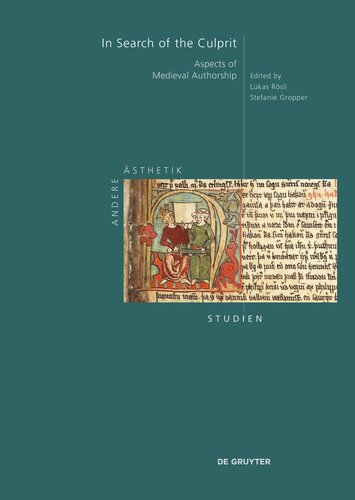

Most ebook files are in PDF format, so you can easily read them using various software such as Foxit Reader or directly on the Google Chrome browser.
Some ebook files are released by publishers in other formats such as .awz, .mobi, .epub, .fb2, etc. You may need to install specific software to read these formats on mobile/PC, such as Calibre.
Please read the tutorial at this link: https://ebookbell.com/faq
We offer FREE conversion to the popular formats you request; however, this may take some time. Therefore, right after payment, please email us, and we will try to provide the service as quickly as possible.
For some exceptional file formats or broken links (if any), please refrain from opening any disputes. Instead, email us first, and we will try to assist within a maximum of 6 hours.
EbookBell Team

4.8
104 reviewsOpen Access
Despite various poststructuralist rejections of the idea of a singular author-genius, the question of a textual archetype that can be assigned to a named author is still a common scholarly phantasm. The Romantic idea that an author created a text or even a work autonomously is transferred even to pre-modern literature today. This ignores the fact that the transmission of medieval and early modern literature creates variances that could not be justified by means of singular authorships. The present volume offers new theoretical approaches from English, German, and Scandinavian studies to provide a historically more adequate approach to the question of authorship in premodern literary cultures. Authorship is no longer equated with an extra-textual entity, but is instead considered a narratological, inner- and intertextual function that can be recognized in the retrospectively established beginnings of literature as well as in the medial transformation of texts during the early days of printing. The volume is aimed at interested scholars of all philologies, especially those dealing with the Middle Ages or Early Modern Period.